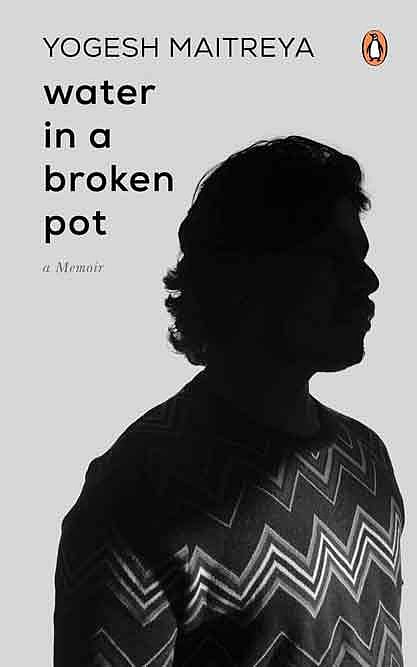Finding Home

Water in a Broken Pot is a memoir of conscience and what Hannah Arendt called coming to terms with the world and developing a quest towards “love of the world” with all the suffering in it. It is only through “love of the world”, that we might possibly think of overcoming the perils of modern societies. Water in a Broken Pot is a reflection of an individual on his life, family and a nation but possibly not society—primarily due to the evil of caste. To put it in Ambedkar’s sociological and philosophical oeuvre—caste is antithetical to the idea of society. And because of this antithesis between caste and society, social democracy remains a chimera in India. The story of being a Dalit is a journey of becoming reflexive being towards one’s own history, culture and loneliness that continue to determine one’s identity. The loneliness with expressions of isolation initially acted as disconnectedness but eventually allowed the author to take a detour towards a form of selfhood embedded in being a Dalit. Rahel Jaeggi in her book Critique of Forms of Life argues how modern societies restrain from collective thinking towards “ethical contents of forms of life”. This is to say caste as a historical and cultural trauma continues to remind us about the promise of democratic-oriented life for everyone as enshrined in our constitution.
The life of the author Yogesh Maitreya takes us into a deep phenomenological lived experience of being a Dalit as we moderns are claiming to move towards a new global age. The promise of the contemporary secular and democratic just society continues to be questioned by certain forms of historical and cultural lived experiences. The linguistic and literary expressions reflect a serious sociological and political understanding through the memoir. These expressions continue to communicate to the reader. Any reader of the memoir would eventually understand how an individual is embedded in the broader collective lived experience of caste in Indian society. The author reflects on this lived experience, not with a single central discourse but there are moments, durations and phases of innocence, playfulness, warmth, sensuality, sexuality, anger, frustration, hopelessness, loneliness, isolation, thinking, writing and certainly learning to engage with all kinds of experiences and often having extraordinary courage to face everything. As a reader what captured serious attention were the moments of learning to read poetry and subsequently beginning to write. As a reader, the question that comes to my mind is—if these have been the process of catharsis or finally moments of engaging with long unanswered questions through poetry and different forms of writing. As Rainer Maria Rilke wrote to Franz Xaver Kappus in the letter dated February 17, 1903; “Go into yourself. Find out the reason that commands you to write; see whether it has spread its roots into the very depths of your heart; confess to yourself whether you would have to die if you were forbidden to write.”
Imran Khan: Pakistan’s Prisoner
27 Feb 2026 - Vol 04 | Issue 60
The descent and despair of Imran Khan
What comes as a refuge to the writer in this chaotic and unjust world, is his continuous engagement with the literary world, stories and narratives. This endeavour towards the life of mind through literature remains central to the meaning-making of the writer and poet Yogesh Maitreya. This meaning-making process amidst the realisation of suffering in a society unleashed on the path of democracy remains a paradoxical one. In a world considered to be determined by different forms of realities—caste continues to be central to historical and cultural thinking for our understanding. Water in a Broken Pot emphasises the continuing meaning of being a Dalit in modern times. The author, with a unique expressive approach, places the centrality to the everyday life of suffering, trauma and hope to rise against the evil of caste. The reflection on his caste identity allows the writer to read and engage with histories and narratives of parallel and similar forms of dehumanisation. And this trajectory takes a crucial and definitely a radical turn when writing becomes central in this reflection. This reflection possibly acknowledges the persistence of caste and its perennial consequences. But this acknowledgement in one’s own life is to rise above the hurt as the author writes: “My Name is why demands the need to rise above hurt. This one sentence helped me [Yogesh Maitreya] to see beyond my own hurt, to grow, to blossom in all my human potential.”

